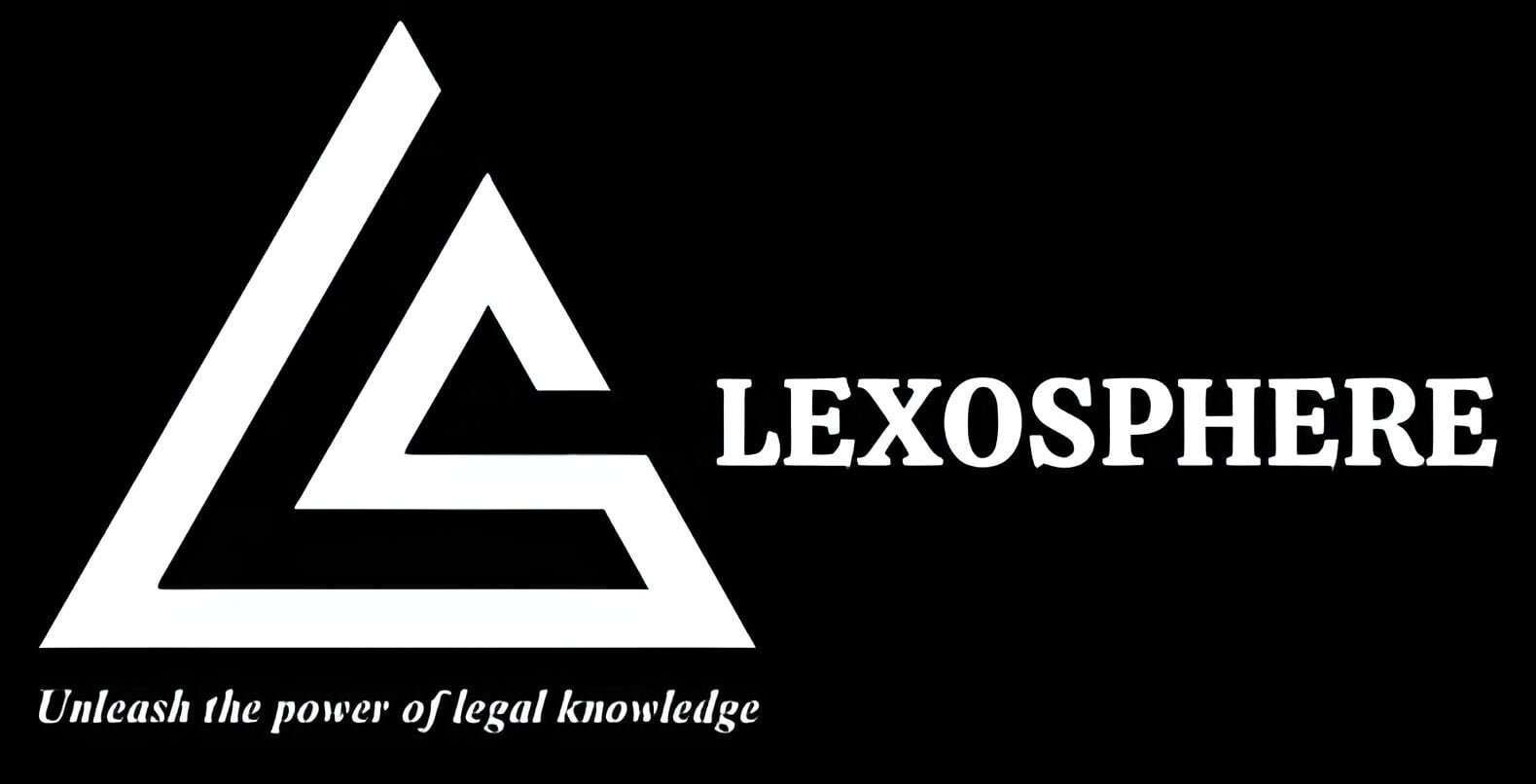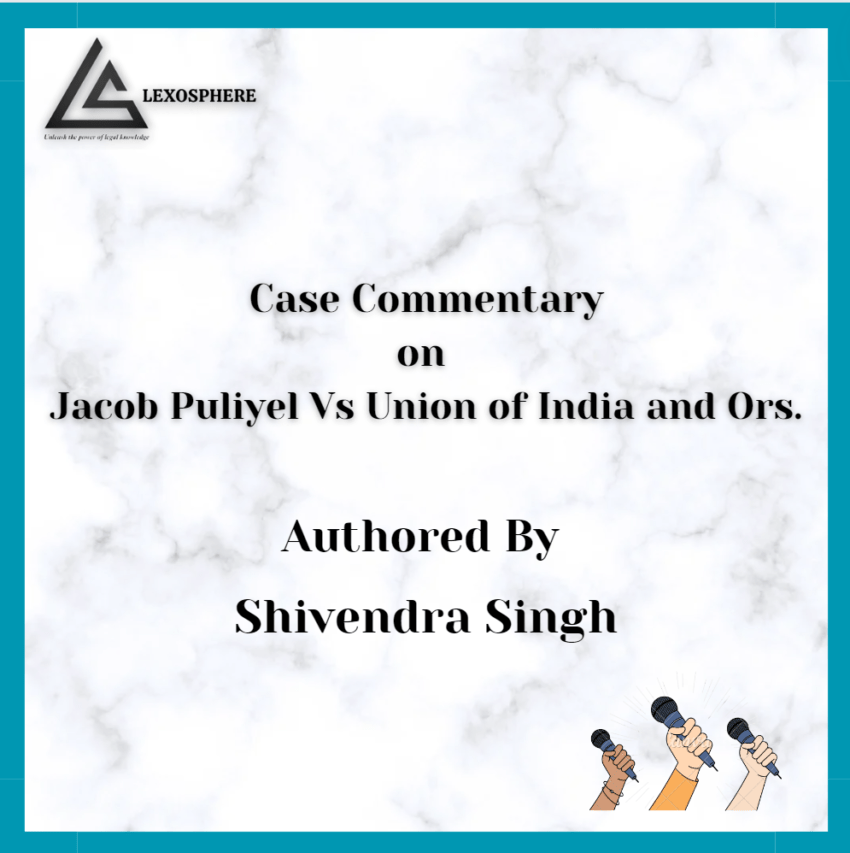Parties:- Jacob Puliyel and Union of India and others
Citation:- 2022 SCC OnLine SC 533
Judges:- L. Nageswara Rao, Bhushan Ramkrishna Gavai
Judgment Date:- May 02, 2022
INTRODUCTION
A virus that hit “India” and the rest of the world makes sense when one considers how vital individual health is and how much it contributes to the development of a nation. Because of the widespread Covid-19 (Pandemic) outbreak that is killing people both domestically and internationally, the Indian government has developed a vaccine against the virus and is enforcing it across the nation. These limitations are put in place in order to shield people from the virus and take all necessary precautions to stop its spread. Article 21 of the Constitution of India is a fundamental right that provides its citizens right to life and personal liberty. Because of that, in Supreme Court, a writ petition was filed as the case Jacob Puliyel v. Union of India and others for doing it mandatory to be vaccinated as it is the violation of fundamental rights of the citizen as per Article 21. It is wholly centered on various aspects as veracity of emergency approving of vaccines, clinical trial data dissemination and mandatory vaccination, effect of vaccines on children, etc.
FACT OF THE CASE
Mr. Jacob Puliyel was a former member of the National Advisory Technical Group. He filed the PIL (Public Interest Litigation) in the Honorable Supreme Court. Before the Supreme Court, he mentioned the mandatory vaccination to the citizens is unfair and unconstitutional and also said to disclose the data which is related to the trials of vaccines namely Covishield and Covaxin. Furthermore he is also not in favor of emergency approving of vaccines in India and clinical trial data dissemination that Government have to disclose all the data of trial of vaccines. He also claimed the poor evaluation and there is lack in the regulatory approval process from Adverse Events Following Immunization, he claimed this all unconstitutional. Mr. Jacob Puliyel, the petitioner asked to publically access all the data and details of vaccines and also wants to know about the mandatory vaccination as the violation of Article 21 of the Indian Constitution.
ISSUES
- Is the mandatory vaccination is violation of Article 21 of the Indian Constitution?
- Whether the clinical trial data which is segregated can be accessed by the public?
- Whether there is improper collection and reporting of the data by Adverse Events Following Immunization (AEFIs)?
- Whether the vaccines for immunization safe for children?
PETITIONER’S ARGUMENT
- In this case, petitioner claimed that the mandatory vaccination which is imposed by the Indian Government is unlawful and unconstitutional.
- The petitioner also claimed that the immunity that is naturally gained is more effectual that the immunization gained by vaccines and the vaccinated people also spreading the virus which shows that they are also unprotected.
- He stated that the vaccines are made for the immunity of public to cure from the virus but there is need for the progressing report at the different time for the different age groups.
- The petitioner also claimed that there is lack of reporting for the events and deaths that occurs due to the Covid-19 virus. So, the Government have to do accessible to the public all the data and reporting to the government’s portal for the information of the current situation of the public health and condition throughout the country.
- It is also stated that the court also finds the clear procedures in finding the data and also reports from medical professionals who are private. Petitioner also stated the risk for youngsters and kids. Kids already growing their natural immunity there are discovering negative impact on the youngsters also.
RESPONDENT’S ARGUMENTS
- The respondent argued that petitioner can’t and should not used the judicial review for influencing the judgments which is concerning to the vaccinations made by the specialists. In addition Union of India also argued that the petitioner could aggravate the current status of the vaccines unwillingness in the country.
- The respondent argued that the situations that are related to the public health like the pandemic of Covid-19, the Court have to follow the decision made in opinion and advice of experts which is the decision of Government.
- The respondent said that the both vaccination are safe, so the further discussion will only increase the hesitancy of the public from the vaccination. In addition, it is also said that all the clinic data which is issued for the vaccination emergency are all done in the legal system boundary of nation.
- The respondent argued that surveillance guidelines to the national AEFIs were required for the seeing and monitoring of AEFIs. The Union of India said that timely reviews, analysis and the data reporting deaths which is performed by the certified experts including all the procedures for all AEFIs reporting are done and set up to the COWIN portal. So for analysis, the blaming of vaccines should not be done by the only AEFI case.
JUDGEMENT
The court held that no one can be forced for the vaccination stated in Article 21 of the Constitution of India which provides its every citizen the rights to life and personal liberty. So, it is the freedom of peoples that whether they have to go for vaccination or not. They have right to refuse medical treatment. But is there is any possibility of the spreading of the virus through that individual then the Government is eligible to take any action for public interest and health.
Regarding the second issue, the Court find that the vaccination campaign done by the Government is in the public interest and for public health but as per Article 21, citizen can’t be coerced for taking the vaccination. The court said that if there is evidence that infection spreading is caused by the unvaccinated people which harms the public health, so, there is the restriction measures that can be imposed on those peoples. In addition, the court gave his advice about reassessing the vaccination requirements for Covid-19 situation.hwn any individual is not ready for vaccination, then, that individual will be well informed about the information which is related to the public domain.
Regarding the third issue, the court has provided the instructions in detail by which it describes the monitoring, evaluating and notify the authorities of the AEF occurrence. Court said that the there should not be any quick review in operations related to national level by the AFI system. The respondent that is Union of India ensure that the patient can easily put an obligation for the adverse and negative effect that will be online.
The reports related to Covid-19 can be accessible by the public after receiving the identity of that individual and should not include any of the sensitive information about the public. There should be all the necessary measures should be taken by the Government for ensuring the information of this self-reporting mechanism to the public that includes hiring and training of the essential parties. The court also said it is not in Court’s authority to check the security of vaccines but it was determined and approved by the agencies including WHO and UNICEF and also in the scientific knowledge.
DEFECT IN LAW
Every Indian citizen is guaranteed the right to life and personal liberty under the country’s constitution. The Indian Constitution’s Article 21 makes this clear. Additionally, the Indian Constitution’s Article 21 and each person’s right to privacy are violated by coercion and vaccination requirements. However, the government has the authority to act in the public interest if there is a situation involving an individual that negatively impacts the public domain and is not in the public interest. Therefore, it is appropriate and free from any legal flaws.
ANALYSIS
In the pandemic of Covid-19, Government draws a rule book for safety measures for the peoples which everyone have to follow and also restricted and mandates the vaccination throughout the country which is for the peoples safety and in the public interest but Jacob Puliyel, a former member of the National Advisory Technical Group filed a case in the Supreme Court for the violation of the fundamental right as he thinks the Government do coercion by mandatory vaccination throughout the country and it also contains the issues such as veracity of emergency approving of vaccines, clinical trial data dissemination and mandatory vaccination, effect of vaccines on children. As the petitioners gave their issues and respondent (Union of India) argued that and finally Court gave his judgement. Government done is in the public interest and for the safety of the public domains and it not violate petitioner’s fundamental right as stated in the Article 21 of the Indian Constitution but the Court held that any individual should not be forced and coerced for vaccination without his willingness but the if it affects the public domain, then within the public interest, the government can take necessary actions by taking the preventing measures by ensuring that it should not affect the Country and within the public interest. It was also held by Court to access all the necessary data of clinical trials, the accessing of the information related to the effects of the vaccine on the different time and in the different age groups and also ensuring that the patient can easily put an obligation for the adverse and negative effect that will be online. The petitioner argued that the benefits of vaccinations are outweighed by the risks, as demonstrated by scientific data. Additionally, he said that data indicates that a number of children have already developed antibodies to COVID-19. Additionally, he mentioned data showing the occurrence of negative reactions in youth after vaccination. In response, the UOI said that international organisations like the CDC, WHO, and UNICEF recommend childhood vaccination. Indian experts’ opinions are in line with those of these international organisations. By providing vaccination data that demonstrated the safety of vaccine use in children, the UOI enhanced its case. And when we talk about all cases of severe AEFIs, including reported deaths, are subjected to rapid reviews, analysis, and causality assessment by trained subject experts. It clarified that merely saying an AEFI case should not be attributed to the vaccine unless proven by the causality assessment analysis.
CONCLUSION
The Court denied the writ petition filed by the Petitioner. There is no one who can be forced for the vaccination and the Government also presents the policy of the vaccination by addressing that the limitations are not arbitrary on the people. The Government has the power to bodily autonomy and can impose limits on the right of the people while doing it in normal welfare. Court puts restrictions for the welfare of the people and in the public interest that’s why mandates the vaccinations throughout the country for not spreading of the virus with the help of any of the individual for not harming the public domain. There is all the publically accessing of the information and data of clinical trials , surveys, reports etc. to the public while still respects the people right to privacy. Those all decisions are in the public interest and for help and safely of the people. Every actions taken by the Government either it was restrictions taken for the pandemic or the safety measures that are taken by Government all are in the public interest. By this case, it is shown that if we take a look then there is the violation of the individual’s fundamental right but we take a look and do a deep research and study, then we finds that the decision that had made is in the public interest and for the betterment of the country.
- The Amikus Qriae, https://theamikusqriae.com/jacob-puliyel-vs-union-of-india/, (10 January 2024).
- LawFoyer, https://lawfoyer.in/jacob-puliyel-v-union-of-india/, (10 January 2024).
Author - Shivendra Singh
Shri Ramswaroop Memorial University

